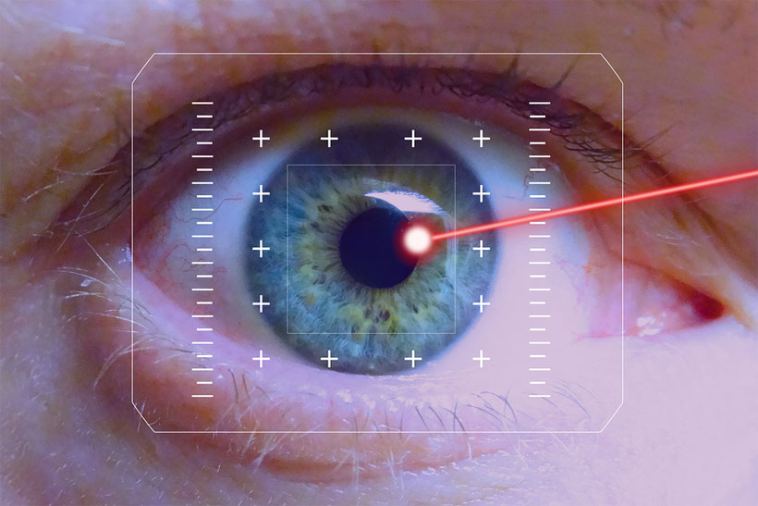- Like
- SHARE
- Digg
- Del
- Tumblr
- VKontakte
- Flattr
- Buffer
- Love This
- Save
- Odnoklassniki
- Meneame
- Blogger
- Amazon
- Yahoo Mail
- Gmail
- AOL
- Newsvine
- HackerNews
- Evernote
- MySpace
- Mail.ru
- Viadeo
- Line
- Comments
- Yummly
- SMS
- Viber
- Telegram
- JOIN
- Skype
- Facebook Messenger
- Kakao
- LiveJournal
- Yammer
- Edgar
- Fintel
- Mix
- Instapaper
- Copy Link
Introduction
LASIK eye surgery is popular among people who have problems with their eyesight and wear lenses or spectacles regularly. LASIK surgery can cure several vision problems, even eye problems that are developed at an early age.
It may seem like almost everyone around you is getting LASIK surgery done to get themselves treated, and for some of them, it worked like a miracle. However, that’s not the case because LASIK cannot help you fix all your eye issues. In this article, we’ve talked about what LASIK can correct and what it cannot, so let’s take a look.
What LASIK Can Correct:
1. Nearsightedness (Myopia)
Nearsightedness, also known as Myopia, is a condition in which a person can see his nearby objects clearly but has trouble with things that are far away. This usually happens when your cornea is steeper and causes the light to focus in front of the retina rather than directly on the retina, which blurs your vision. When you have Nearsightedness, your doctor performs the LASIK surgery to reshape your cornea, which helps you to fix your vision.
2. Farsightedness (Hyperopia)
As the name suggests, Farsightedness, also known as Hyperopia, is a condition in which a person can see objects far from him clearly but has difficulty with the nearby objects. This happens when your cornea is flat, and the LASIK surgery doctor will work on your cornea and reshape it to restore your vision.
3. Astigmatism
When you have Astigmatism, you will have blurry vision at all distances. This means that you’ll have trouble viewing the objects far from you and even those which are near you. In most cases, Doctors will be able to fix your irregular cornea by performing the LASIK eye surgery on you. The view for Astigmatism vs normal eye differs significantly because people with Astigmatism may see everything distorted.
4. Presbyopia (Need for Reading glasses)
Presbyopia is a condition that usually develops in everyone as they start ageing. People over the age of 45 are more likely to get presbyopia naturally. If you have presbyopia, you might face trouble while reading text on your smartphone, menus, bottle labels and more. A LASIK technique named monovision can cure Presbyopia; however, it is not recommended to go for it when you need reading glasses and have an excellent distant vision.
What LASIK Cannot Correct:
1. Amblyopia
Amblyopia is also popularly known as lazy eye, and it is a muscle-related problem usually found in children. In most cases, LASIK can’t treat Amblyopia completely; however, it may help you get a more suitable vision with continuous glasses.
2. Cataracts
Cataracts are a condition that is usually found in people who are aged 60 and older. A person dealing with Cataracts has a cloudy lens, and hence LASIK can’t help to fix it.
3. Glaucoma
Glaucoma is a severe disease that can result in vision loss or blindness. It is a group of eye conditions that damages your optic nerve, and there is still no cure for this. Hence, LASIK eye surgery can’t help you to fix your Glaucoma problem.
4. Keratoconus
When the cornea in your eye thins and gradually bulges out into a cone shape, Keratoconus occurs in your eye. When the shape of your cornea gets changed, your vision becomes blurry and distorted. This happens because the light rays get out of focus. Keratoconus can’t be fixed with LASIK, and hence it is not recommended to get it done.
Other Factors to Consider
While LASIK is a great option to heal the conditions mentioned above, a person must keep certain other factors in mind. LASIK surgery is best performed on someone who is over the age of 18 and under the age of 60. People over the age of 60 have a higher risk of developing cataracts. You must have good health when you get LASIK surgery done.
Conclusion
LASIK has been performed on millions of people in the last few years, and most of them saw some incredible results as well. However, it is recommended that you visit an Eye specialist to know if it’s the proper treatment for your condition or not.
About the Author:
Aaron Barriga is the online marketing manager for Insight Vision Center. With a knack for understanding medical procedures and an interest in eye and vision health, Aaron loves to share what he knows and what he learns. He blogs to inform readers about the latest eye care technology and other topics related to eye care, especially LASIK. Aaron loves collecting coasters from the different bars and restaurants he visits during his travels.


